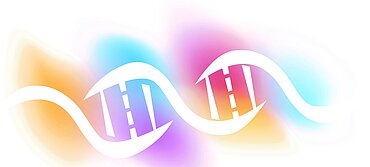GenIDA: a participatory platform for research on neurodevelopmental disorders
Launched in 2016 by Prof. Jean-Louis Mandel, Emeritus Professor at the IGBMC, the GenIDA* platform aims to collect and centralise information on patients with genetic forms of neurodevelopmental disorders. Its purpose is to provide the scientific community and health professionals with valuable data to better understand these disorders and improve the care of the people concerned.

A better understanding of genetic forms of neurodevelopmental disorders, a key issue for patients and caregivers
Technological progress in sequencing has made it possible in recent years to identify an increasing number of genes and chromosomal abnormalities involved in genetic forms of neurodevelopmental disorders. More than 1,000 genetic forms of intellectual disability or autism spectrum disorders have been identified to date, and new ones are still being discovered regularly.
These pathologies are still insufficiently described in terms of clinical spectrum, associated medical problems or natural history (evolution of the pathology over the course of a lifetime), due to their rarity, their recent discovery and the limited number of patients concerned by each form.
Indeed, "for some disorders, there are sometimes very few patients in the world," explains Pauline Burger, GenIDA project leader, "we need the participation of these patients to better understand their pathology and facilitate future diagnoses. This is a crucial element in improving patients' quality of life, because "without the diagnosis, it is difficult to put in place effective and truly adapted care; in the meantime, caregivers are often left to their own resources," adds the scientist.
GenIDA, a concrete and crucial aid to research on neurodevelopmental disorders
The GenIDA project is a participatory platform where patients and their helpers can get involved in research by providing health and quality of life information on the affected person, such as :
- Associated pathologies (musculoskeletal disorders, cardiac or respiratory problems, epilepsy, etc.)
- The side effects/adverse effects of certain treatments for these co-morbidities
- Difficulties encountered in daily life
- The sociability of the person affected
- Their autonomy
- etc
The objective is to create international cohorts of patients that are representative in order to identify medically significant information to improve the care of people with the disease and possibly facilitate the diagnosis of other patients with similar disorders.
In 6 years, nearly 1450 patient files from more than 60 nationalities have been completed and have been used to draft several National Diagnostic and Care Protocols, some of which are due to be published this year, on diseases such as Koolen-de Vries, Wiedemann-Steiner or MED13L syndrome.
Participating and accessing data
All information submitted to GenIDA by families via a structured questionnaire currently available in 7 languages is anonymised. Researchers, clinicians or other health professionals can access the data collected, with the aim of studying it to generate new and medically meaningful knowledge, to submit additional questions to a subset of patients, or to recruit patients for research projects or clinical studies.
To do so, they simply need to contact GenIDA (genida@igbmc.fr), prove their quality and explain very clearly the framework of their request:
- Which cohort(s) they wish to access
- The objective sought
- The treatment applied to the data
You can find all the information about the project and access the questionnaire here: https://genida.unistra.fr/
* Genetics of Intellectual Disability and Autism Spectrum Disorders
